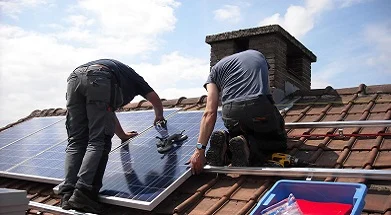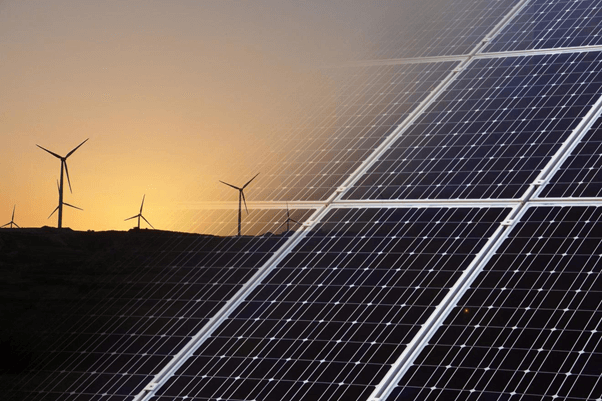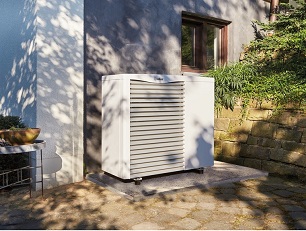When it comes to planning a renovation for a customer or a client, installers must keep energy efficiency in mind in order to meet the government’s emissions targets. Homes that don’t meet modern efficiency standards will only require more work going forward, in order to bring down emissions and meet the 2050 net zero emission target.
Most of this comes down to increasing a home’s EPC rating. Since targets are in place to ensure all homes achieve an EPC of C or higher by 2035, professionals must implement ways to increase home efficiency in renovations and new builds alike.
With that being said, let’s take a look at a few key ways professionals can make homes more energy efficient, ranging from quick and easy product swaps to extensive alternative home heating solutions.
Easy Ways to Make Homes More Energy Efficient
1. Draught-proof doors and windows
Draught-proofing homes is one of the most effective ways to keep warmth in, and chilly draughts out. Adding draught proofing is a relatively simple job, and won’t eat into your budget. Depending on the house, you can draught-proof a whole house for under £250.
Due to the decreased heat loss, homes with effectively draught-proofed doors, windows, floors, and skirting boards can expect to save 215kg on their annual carbon emissions, and reduce annual heating costs by £130 per year on average.
2. Use energy-efficient LED lighting
Installing energy efficient lighting is one of the cheapest, easiest, and effective ways to reduce a household’s carbon footprint, and improve its EPC rating.
Households with full LED lighting can expect to reduce carbon emissions by 40kg per year on average.
3. Install smarter heating controls
You might have heard the buzz around smart thermostats saving consumers hundreds off their energy bills each year. By giving customers more control over their heating, smart thermostats can vastly improve the heating efficiency of any home - reducing the strain on boilers and preventing unnecessary household heating.
Pre-installing a smart thermostat can improve a home’s efficiency from the get-go. Combine this with thermostatic radiator valves and customers can enjoy a far more energy efficient household by only heating what they need.

How to Improve Energy Efficiency
4. Wall / loft insulation
If the renovation or new build development you're working on is structurally sound with no damp or condensation issues, there’s no reason to not insulate the loft and walls. This is especially true when it comes to cavity walls, which are very easy to insulate.
5. Double glazing
Double glazing is commonplace throughout new build and renovation projects, however to get maximum benefit installers should look for A-rated double glazing.
A-rated double glazing can significantly reduce building heat loss, and can save the average UK property around 340kg on their carbon output.
Install Energy Efficient Heating Systems
6. Heat pumps
If there’s room in your customers’ budget, switching to a heat pump over a traditional heating system is an attractive solution for providing homes with clean, renewable energy that’s certainly worth talking about.
Whilst some developers are hesitant to include heat pumps in new build properties, installing an efficient heat pump system in a renovation project can lead to huge cost and energy savings in the long term, and might even add value to your property.
Heat pumps are a huge factor when it comes to cutting carbon emissions - as swapping to an air source heat pump from an old gas boiler can save a monumental 2,800kg of carbon emissions per year.
To learn more about heat pumps and the grants and schemes available to those who upgrade, click here. We also have a guide available for installers outlining everything you need to know when installing heat pumps.
7. Solar panels
Similar to heat pumps, if your customer can afford the initial cost then solar panels are a win-win. Free, renewable energy that can cut emissions and vastly improve a building’s energy rating.
Solar panel efficiency is dependent on a few factors - including roof direction, shade from nearby trees/buildings, and energy usage - so perform a proper solar panel efficiency evaluation before recommending them to clients. On average, UK homes can cut carbon emissions by around 680kg with an effective solar panel setup.

When it comes to home renovations, new builds, and any other kind of construction or installation project - it’s now more important than ever for installers to keep energy efficiency in mind.
By considering renewable energy alternatives during the planning phase of a project, or by making simple product swaps or changes during the installation phase, professionals may find higher EPC ratings to be far more achievable than previously thought.
Other articles

The Many Benefits of 'Green Plumbing'
22 Aug 2022 ・ 7 mins

Everything you need to know about the Green Homes Grant
04 Mar 2022 ・ 8 mins



